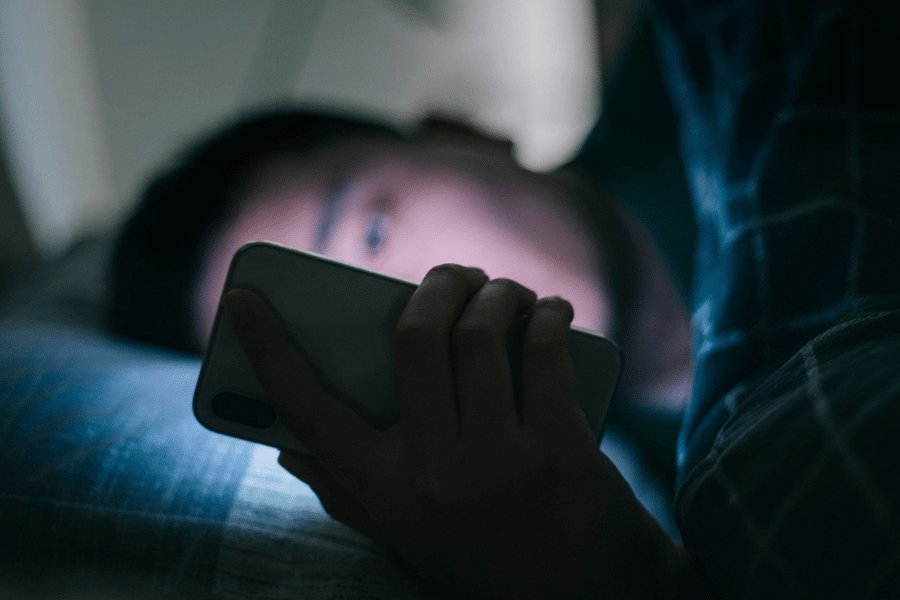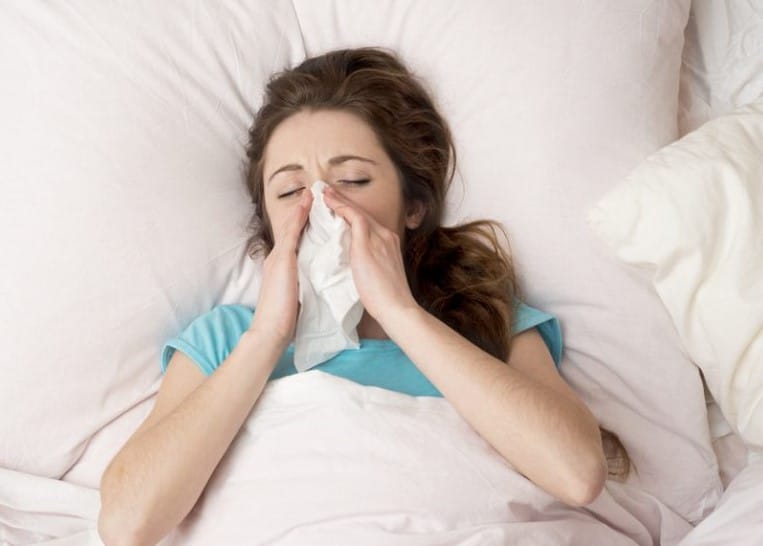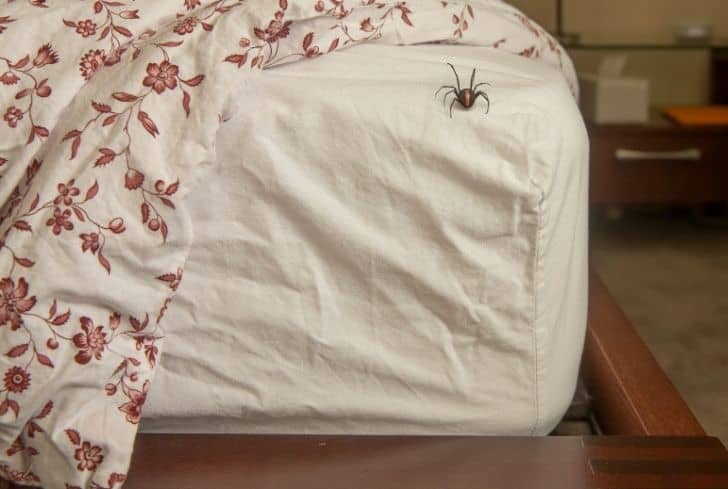

Also known as somniloquy Trusted Source Sleep-talking - Wikipedia Somniloquy, commonly referred to as sleep-talking, is a parasomnia that refers to talking aloud while asleep. It can range from simple mumbling sounds to loud shouts and long, frequently inarticulate speeches, and can occur many times during a sleep cycle. en.wikipedia.org , sleep talking is a disorder that involves individuals talking in their sleep without their awareness.
It involves complex verbal terms during sleep, which may be gibberish, mumbling, and complicated dialogues.
Notably, instances of sleep talking are rare and occur in short periods. Most people experience at least one episode of sleep talking in their lifetime. This is completely normal.
These are one of the most awkward behaviors people have during sleep. It is because sleep talking occurs without the knowledge of those who experience it.
Such a sleep disorder is complex, and the causes are not entirely known. Furthermore, the treatment of this sleep disorder has not been identified.
The good thing is that the consequences and symptoms of sleep talking have been explored on multiple research grounds.
Talking in your sleep is the simplest term used to describe sleep talking.
This disorder falls under the category of parasomnias. Notably, parasomnias are awkward behaviors that occur during sleep.
Baby talking in sleep is also common, which primarily affects toddlers. Parents should examine their children to spot and rectify issues related to sleep talking.
Leaving it unattended may result in the development of serious ailments during childhood. Toddlers talking in their sleep might be normal on the condition that it is experienced rarely.
Sleep talking is different from other parasomnias. Here, it is vital to note that most parasomnias occur during intervals in the sleep cycle. On the other hand, sleep talking takes place while the eye moves rapidly or during non-REM sleep.
Furthermore, this sleep disorder entails somewhat weird vocals. Other conditions, such as cataphrenia, do not have such unique experiences.
Mumbling at night can be harmless. However, some of it is considered graphic. At times, those who listen to sleep talkers describe the mumbling as vulgar. Sleep talking is known to occur for more than thirty seconds for every instance.
Sleep talkers also use simple or long sounds in their dialogues; speeches may also be part of it. These individuals are seen as talking to themselves or at times seem to have conversations with other people. They also mumble words silently or may shout.
Recognizing sleep talking is easy since it has easy-to-spot symptoms.
The most common symptom of sleep talking is usually audible mumbling that takes place deep in the sleep.
As previously mentioned, these episodes occur without the knowledge of sleep talkers. Furthermore, the mumbling can be gibberish and not easy to comprehend or normal speech.
Sleep talking involves silent speech, which may be blocked under the sheets. The types of sleep talking that is comprehensible involve following the correct grammar standards and talking as if one is engaged in real interpersonal communication.
Several instances of sleep taking involve verbally exclaiming provoking sentiments. Therefore, the condition has been linked with conflict and negative emotions.
These emotions highlight the brain’s activity during those instances. It is worth noting that individuals who talk derogatory statements during their sleep are often stigmatized and ashamed of their conditions.
The moments of oblique and individuals have no memories of mumbling statements. Furthermore, those who become aware have no recollection of what they mumbled.
Sleep talking episodes are short. They also rarely involve long conversations, and the full episode has a handful of sentences. It is also essential to note that the content of sentences mentioned during sleep talking is not known.
The statements mentioned do not necessarily connect to the lives of those who experience episodes of sleep talking. Additionally, they are not based on events that occur in reality or conversations that previously took place. Sleep talking is connected to dreams; however, not all episodes are not linked to dreams.
Experts have not fully explored the causes of sleep talking.
As much as multiple research has been done and continues to be done on the issue, what causes sleep talking remains unknown.
Some evidence has linked sleep talking to genetics. This means that the disorder is somewhat tied in families and can be transferred from one family member to another.
Sleep talking is also at times accompanied by other behavior. For instance, twins were identified to grind teeth and have nightmares while talking in their sleep. Adults have also been identified to have the same episodes.
Sleep talking has also been linked with mental health conditions. Patients with other disorders are more likely to talk in their sleep than normal people. There are some minor health conditions linked to sleep disorder.
Notably, those with post-traumatic stress disorder (PTSD) are prone to experience episodes of sleep talking.
Since the causes of sleep talking remain unknown, the treatment options available are also limited.
The good thing is that sleep talking occurs on rare occasions and has minimal negative consequences. Therefore, treatment may not be that much of a big deal. You must understand how to stop sleep talking and employ the best ways of reducing the chances of talking in your sleep.
You need to set your environment to offer the most comfortable sleep. Disruptions in the middle of the night will result in a lack of sleep alongside the discomfort of talking in your sleep.
Thus, you can use earplugs to block out unnecessary noise. According to most reviews on Amazon, the best earplugs in the market remain Eargasm High Fidelity Earplugs. The earphones have a high sound quality and are hypoallergenic plush silicone. These earphones will offer you the best nights without disruptions.
Another method of enhancing your sleep experience is using an excellent pillow. Experts recommend the Nature’s Guest Cervical Support Pillow as the best in the market. It conforms to unique shapes, has a luxury knit cover for extra comfort. Now that you understand how to stop talking in your sleep, take the initiative and make your bedroom conducive.
Sleep talking is a broad topic and has been a social concern. These are the most asked questions about sleep disorder.
Is sleep talking dangerous?
Sleep talking is not harmful. Trusted Source Sleep Talking | Sleep Foundation Talking in your sleep can be disruptive, especially to bed partners. Learn about sleep talking (somniloquy) and its causes, consequences, and treatment. www.sleepfoundation.org It does occur frequently enough to cause serious mental or physical problems.
Furthermore, sleep talking does not have an impact on one’s sleep. Sleep talking can become serious under certain conditions.
For instance, when it interrupts the sleep of other people in the room or the content of the talking becomes extremely alarming. Individuals may be stressed, and in some cases, feel stigmatized. Sleep talking can also occur alongside other disorders such as the nightmare disorder of walking during sleep.
How common is sleep talking?
Sleep talking is more common than you think. More than 50% of the global population have had episodes of this disorder.
However, its occurrence is not frequent as with other disorders. Additionally, the disorder is found more in children than adults. Men and women experience episodes equally. It is also vital to note that the existing data on the prevalence of sleep talking is not accurate.
Should I see a doctor if I talk in my sleep?
You should make a point of visiting a doctor when sleep talking episodes occur frequently. Doctors offer sleep talking treatment and help in controlling the condition. Sleep talking should not so much to the extent that it interferes with sleep. Sleep talking can also be accompanied by other serious ailments such as nightmare seizures.
These situations require immediate medical attention. You should also schedule an appointment if you experience the first episodes of sleep talking after twenty-five years.
Can sleep talking reveal secrets?
Sleep talking cannot reveal the secrets of one’s life.
The idea of finding out about the secrets of others while they sleep talk is compelling. Unfortunately, or fortunately, sleep talking does not make people reveal secrets.
The mumblings do not reflect personal life experience; instead, sleep talking results from a free, roaming mind.
Sleep talking is one of the disorders that has not been fully explored.
It involves mumbling weird words during sleep and might be difficult to control. Episodes of sleep talking are normal-most people experience them at least once in their lifetimes.
It is also vital to note that these episodes can be short or long. As much as the treatments for this condition have not yet been identified, it is possible to reduce episodes.
Improve your sleeping experience, and you will realize that these episodes are less common. The best mattresses and pillows will work the trick.





